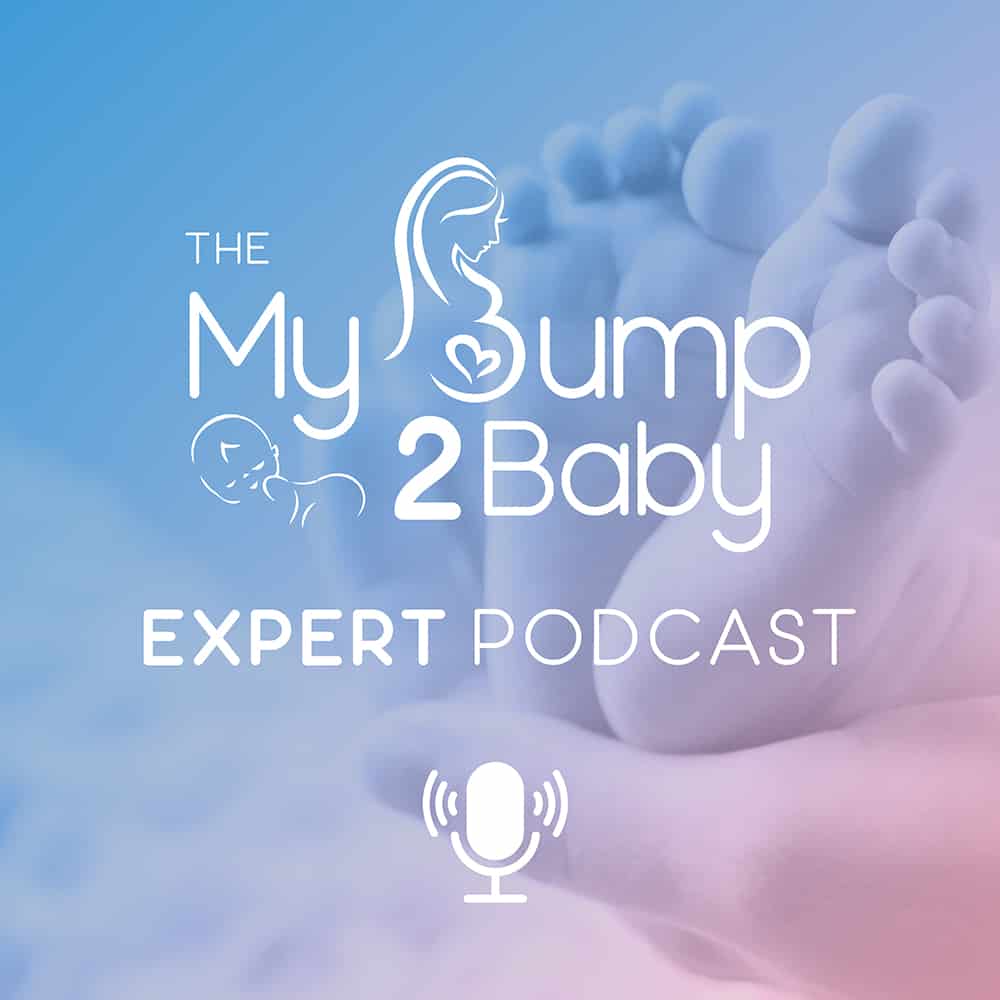- Who wants to be a Millionaire
All examples mentioned are based on assumptions and are not guaranteed, investments can rise and fall in value.
Today Carla Lett Speaks with Mark Torrado our financial advisor in Glasgow. Mark discusses all the different ways financial advisors can support families and even shares how you can make your child a millionaire with regular savings.
You can contact mark via the following methods
https://www.wrensterling.com/bump2baby/
linkedin- https://www.linkedin.com/in/mark-torrado-dippfs-97728810b/
Mark Torrado Dip PFS
Independent Financial Adviser
01413 415240
[00:00:00] Carla: We are Google’s number one baby and toddler directory. We cover everything from pregnancy to preschool and we are home to over 8, 000 business listings. Join over 160, 000 parents using our website each month and you can find your local groups, classes, services and support in your local area.
[00:00:30] Hello, busy mums. Now, I know your life is a juggling act, and I know that because mine is too. I have created the solution to help you stay organised, help you smash your goals, And, help you focus and stay in control. Introducing to you, the Busy Mum Planner. This is your ultimate partner in conquering the chaos known as family life.
[00:01:00] Are you tired of feeling overwhelmed with endless to do lists, appointments coming out your backside, and school schedules? The Busy Mum Planner is here to rescue you. It’s not just any planner. This is your secret weapon. It’s got sections for shopping lists, daily to do lists, monthly goal section, as well as a monthly budgeting section too.
[00:01:28] This planner is designed for every part of your life to make you feel in control. Grab yours today in the link under this podcast.
[00:01:48] Hello and welcome to My Bump 2 Baby Expert. Where we bring experts from all over the UK to answer your questions on everything pregnancy to preschool.
[00:02:10] Today we speak with our financial advisor in Glasgow, Mark Torrado. And we talk all about the different ways financial advisors can help you and your family. And Mark even shares a little bit more about how you can make your child a millionaire with regular savings. I hope you enjoy this episode. Hello everybody and welcome to My Bumped Baby’s Expert Podcast.
[00:02:38] Today I am joined by the lovely Mark from Wren Sterling in Glasgow. Hi Mark, how
[00:02:44] are you?
[00:02:46] Mark: Good morning Carla. Yes, I’m very, very good. Thank you very much for inviting me on to your podcast today.
[00:02:51] Carla: I’m looking forward to having you on here because I think with, when it comes to financial advice and families, it can kind of go to the back of the queue, but it’s so important, isn’t it?
[00:03:02] Mark: Yeah. I mean, I’d absolutely agree with that. And sometimes people are, you know, mums and dads are so, so focused on being a really good mum and dad. Um, and that’s obviously the most important thing and the other things that don’t seem as important at the time, it can sometimes slip, slip to the back of their mind.
[00:03:19] But everyone is in very, very good company when it comes to that, because it’s a very common theme through every, you know, client that I speak to or any interaction I have. And then when, when you asked, or when we spoke about coming on today, it’s just a chance to kind of put that back and maybe at the forefront of people’s minds for a wee second.
[00:03:38] If I can, you know, interest one person to engage with a financial advisor or look at some of the topic material we’re discussing then I think that can have a really positive impact on families and children.
[00:03:51] Carla: Definitely, definitely. So a little bit about you then Mark, would you mind sharing a bit more about you?
[00:03:58] Mark: Yes, not at all. So, my name’s Mark Torrado. My dad is Portuguese, which is where the second name comes from. So, I do enjoy a holiday in the Algarve.
[00:04:06] Carla: Oh, I love it there. I love it. Whereabouts in Portugal is your dad from?
[00:04:11] Mark: Um, he’s from Lagosh in Elgarth.
[00:04:12] Carla: Oh, I don’t know where that is. Oh, I’ve been to Albufeira and that’s about it.
[00:04:16] Mark: Yeah, it’s not too far.
[00:04:17] It’s about 35 40 minutes from Albufeira. But, I mean, especially when you’re looking out, especially up in Scotland at the moment, I’m looking out and now it’s, you know, freezing cold, the rain’s hitting the window. I could think of somewhere I’d rather be. I have, I live with my girlfriend and partner Gemma, and we have two lovely dogs, so we have two Labradors, one is eight weeks old, she’s called Marmalade, and her big sister is Nova, she’s two, and she’s also a Labrador, and they’re the best of friends, they’re getting there.
[00:04:48] I’m very family oriented, and so, um, I’m a fairly young man myself, so I hope to go on to have, have family, but, um, I’m really close with my immediate family, and my nieces and nephews mean everything to me. Um, so, so yeah, I spend a lot of time with them. And from a work point of view, I have the pleasure of going out and speaking to lots of different people of all sorts of backgrounds, from millionaires to people that are 18 and just starting out on, you know, a pension journey or whatever.
[00:05:17] And I find that, you know, a really, really important and rewarding job to kind of help put people on a path that they want to be on sometimes. So, so that’s my job. Yeah, an independent financial advisor would be the official.
[00:05:32] Carla: Brilliant. So when it comes to financial advisors, someone might be listening to this that has no idea what financial advisor does. So what are the different things that you can help parents with?
[00:05:44] Mark: Yeah, I mean, that’s a really good, good question. And it’s something that’s not always easy to answer. Um, you know, sometimes If a parent has a general inquiry or wants, wants to look after the financial welfare, full stop of their family, they can speak to a financial advisor.
[00:06:02] And our most important job to start with is just to listen, you know, is to listen and ask questions. What are you, why did you contact us, you know, what, what are you looking for in the next sort of five, ten years for your children? Do you want to put them through education? Do you want to save up a house deposit?
[00:06:19] Are you worried that if you can’t work that, you know, that’ll have an impact on, on quality time within the family? So we can help with an absolute assortment of things. And we typically probably hear financial advisors talking about life insurance and things like that. But that’s really just the tip of the iceberg.
[00:06:36] And we tend to talk about Life insurance quite a lot because or, you know, insurances more general because that is a sort of bedrock to any plan because any plan that we put in place depends on, on yourself, the client. So yeah, if you don’t have the right insurance in place and you start a savings policy, if you can’t work and you can’t pay into that savings policy, if you’ve not got insurance to help you, then you fall back on it.
[00:07:00] So that’s some things why we talk about that first and foremost, but it’s, it’s, it’s.
[00:07:06] Carla: It is so important and that’s something when I used to work in financial services years ago, you’d see so many people that would come in and say, please tell me I took out that life insurance because something terrible has happened.
[00:07:19] And sometimes unfortunately they hadn’t. And you just think, oh gosh, you wish. You don’t, no one has a crystal ball and no one knows what’s in the future, do they? So it’s just a case of kind of making yourself as protected as possible. Cause once you become a parent, you know, you want to protect your little ones.
[00:07:37] And, you know, if something happened to you or your partner, you know, imagine your little one, then not being able to go to the swimming lessons and the life changing, not just from losing the partner, but then losing everything. That their life was before as well and it’s really, really sad and not just, not just about death either.
[00:07:56] There’s a lot of plans in place for critical illness and things like that because, you know, we, we sadly read about it too much nowadays, don’t we?
[00:08:05] Mark: Yeah, no, you’re absolutely spot on, Carla, and it’s sometimes a difficult one to broach with clients, because it’s not something that everyone likes to think about, and there’s the always there visit or it’s not going to be me end concept.
[00:08:15] But the last thing that anyone wants to think about when there’s anything unfortunate that happens to their family is financial concerns. If financial concerns can be put in a box and no one needs to worry about money or returning to work, then what that allows the parents to do is focus on their children spending time with them.
[00:08:33] There’s countless examples where, say, a parent goes down to a single income household and they must go out to work to provide for the, you know, their family. If their kids don’t get interaction with their parents, they can turn to, you know, a lifestyle that would be far from ideal because they’re not getting that sort of support from the parent because they have to go out and provide.
[00:08:53] So it does help in so many, many different ways. One thing that I’m really keen to remind my clients is, you know, there is life insurance, which obviously pays out in the very worst circumstance. But even when you have a life insurance policy, especially when taken now through a financial advisor, it comes with an array of benefits that you can use throughout the lifetime of policy.
[00:09:15] So It’s, it’s one of these policies that actually try to get clients to remind themselves that they can actually engage with it when they’re not actually a claimant on it. So an example for that might be sort of counselling support usually comes with, with certain types of life insurance and policies.
[00:09:32] Careers advice helplines, just things that you wouldn’t necessarily think of comes with it and it can be really useful too. As well as that sort of like private medical insurances is something that’s quite popular now. Yeah. And that just means that if you’ve got a parent there, and let’s say self employed, and you know, does a really manual job, hurts their knee, makes a GP appointment, they can’t get out to see a doctor for a few weeks.
[00:09:57] And then after that, they’re a few weeks later until they get to a consultant. a few months later for an operation. In that time that that individual’s not earning or not working can cause a strain on the family. With private medical insurance, you probably have seen the doctor and had the operation within 10 days in some, you know, some extreme examples.
[00:10:16] So I think the main thing is just trying to be aware of trying to introduce people to what is out there and how it can support our families.
[00:10:23] Carla: That’s it. And I think sometimes, you know, it can be something that we don’t, I think a lot of parents when they don’t know. About something it’s quite scary, especially when it comes to money, because we all want our money to work as hard as possible for us, don’t we, and for our children, but unfortunately, you know, without kind of with the way the world’s going, you know, unfortunately, interest rates in normal cash.
[00:10:46] Deposit accounts aren’t keeping up with inflation, are they? So, you know, sometimes saving into an instant access account isn’t, isn’t the best, best case scenario really. And there are savings you can do for your children, isn’t there? Um, but a lot of people don’t realize about.
[00:11:03] Mark: Yeah, I mean, you’re absolutely spot on. I mean, at the moment, we’ve got, I mean, just to start with, it’s such a hard time for many, many people out there, and I appreciate sometimes when you mention savings, when, you know, gas and electric is so high, it can sometimes take people back and think, well, first off, I’ve got to try and pay the gas and electric, so we totally do appreciate that, but if you are in the position that you are looking for savings, it’s important to actually think about what is that savings for.
[00:11:29] So if you know that you want to, to save to provide your young one a really good start, a bumper start to their adulthood, through university, you know, property deposits or anything, and you’re going to start that journey when they’re quite young, or, you know, If you don’t do it when they’re born, say you’re going to do it a few years later.
[00:11:48] We’ve got to really be conscious of the time that that money will be saving. If you’re going to be disciplined and not touch it, and you’re going to take care of it, then we need to be conscious that if we leave that in a cash account, it’s probably the only place where it won’t actually grow in money, even for the kids.
[00:12:05] Inflation tends to outrun in cash deposits. So for example, at the moment we see good rates in the bank and you get four or five percent, but inflation is running at six percent. Last year inflation was running at say, you know, up to sort of eight to nine percent. Cash accounts were only three. So it’s that invisible force that’s eating away at your money.
[00:12:24] And it’s, you know, inflation is, you know, obviously if you buy, I remember when I went to the shop with a pound, I could fill up, you know, I could get loads of stuff when I was really young. If you gave your kid a pound to go to the shop now, I mean, they’re probably going to come home empty handed.
[00:12:37] Carla: I don’t even think you can get a chocolate bar for a pound.
[00:12:40] Mark: Yeah, I don’t think you can get a galaxy bar. It’s that idea that we want that money to actually be worth the same purchasing power, if not more in the future. And that’s where sort of advisors or, or, or, you know, You know, but just by speaking with anyone in financial services can help you pick the right places to put that money to give your child the best possible chance of having a good end start for whatever that objective would be.
[00:13:02] Carla: Yeah, and I think as well, it’s important to remember that, um, they don’t all have to be these high risk kind of funds and things like that. It’s based on, I’m sure you do it based on the risk that the client wants to take. And also, you know, it’s not all, you know, all about. losing money and risking money or anything like that, is it?
[00:13:22] There’s loads of different things that you can do, um, as well as regular savings and things like that, can’t you?
[00:13:29] Mark: Yeah, you’re absolutely spot on. I mean, there’s so many different options out there to families and there really truly is probably the right, definitely is the right option for each individual in person.
[00:13:42] It’s just about, I think the key thing to it is actually working out what you’re saving for and how long you’re going to be saving because if we look, So stocks and shares sometimes can be a scary word for, for some, for most people that aren’t in financial services because you just think stock market, money’s rising, money’s falling.
[00:14:02] Carla: Yeah, yeah.
[00:14:03] Mark: But if you’ve got an 18 year old investment, so if your child is zero, you obviously start off zero and then you go. Um, equity markets over that time, time and time again, and any data you look at will outperform any other place that you can put your money. And the, the, the journey will be volatile.
[00:14:23] So that, you know, if you put in a hundred pounds to start with, that may go down to 90 pounds, it may go up to 110. But over that investment term, we would class that as being a really long investment term. So by not including some of these stocks and shares in it, You’re really kind of, you’re actually walking away from some really good growth opportunities.
[00:14:39] Carla: Yeah, yeah.
[00:14:41] Mark: And as well as junior ISAs, and so obviously a junior ISA is something I’d encourage most parents to look at to start with.
[00:14:47] Carla: Yeah, can you tell us a bit more about, sorry you were probably about to, but a bit, little bit more about the junior ISAs because some people might not know.
[00:14:55] Mark: Yeah, exactly. So a junior ISA is a great place to start off a savings account for your kids. You can either have cash, stocks and shares, and you can put 9, 000 in per child and any growth that that makes, if that doubles in value, triples in value over the term, you can take it all out tax free. And that’s quite important with interest rates rearing their head a bit because If interest rates rise, then the chances are that you may pay tax on your savings over time.
[00:15:24] So the junior ISA just basically makes sure that you can pop that in there. It can be in a cash account or it can be in something a little different, but the key thing is your kid and yourself get to hold on to those, those returns. rather than paying some away in tax, which obviously will disrupt the growth of it.
[00:15:40] Um, but there’s, there’s other things as well, like sort of premium bonds for, for, for children you can buy and give them premium bonds. That’s totally backed by the government. Um, it’s like a lottery, um, type draw, um, that goes on, they pull out a number, a premium bond number, and then they, they distribute the winnings depending on what that is.
[00:15:58] Um, and really some, some So, but at least it’s, at least it’s got the chance to actually perform at a better rate than typical cash deposits, etc.
[00:16:16] Carla: Makes sense. And I think something else I wanted to ask you as well is children’s pensions, you know, like a lot of people don’t realize that you can actually invest in your child’s pension, can’t you?
[00:16:29] Like it might seem a million miles away, but it goes so quick, life goes so quick, doesn’t it? Um, so can you tell us a little bit more about how that works, if that’s all right?
[00:16:41] Mark: Yeah, of course. And this is probably my favorite example ever. When you think about long term planning and what it seems like in comparison to the benefit, what you get in the end, what you put in at the start, it seems like a massive, you know, massive difference miles apart.
[00:16:57] And I think this example I’m about to give you really just you know, illustrates if you have a good plan and you stick to it and you invest in the right sort of areas, you know, the rewards can be, can be, you know, quite monumental. So, um, anyone can pay into a pension really for anyone, broadly speaking.
[00:17:15] So you can, you can start a pension for, for anyone. Um, there’s limits to how much you can put into that pension, um, obviously because The main benefit for you or I, um, Carla, putting in a pension is if we put in 100 into our pension, then we’ll get our tax back on it, what we’ve paid on that. So if we paid basic rate tax, that 100 just the way it crosses up, or if we paid higher rate tax, that 100 turns into 145.
[00:17:42] Obviously, our little baby, little baby Mark, he’s not earning anything, so he’s not necessarily entitled to get all, you know, you couldn’t put a hundred, you know, ten thousand pounds in because it’s not made anything. But the government do let you put a small amount of money in to get that. And the example that I’ve got is if you started off when, when your little one was born, and you paid 200 pounds a month, I think that could be roughly what child benefit might be for some people. Would that be right, Carla?
[00:18:11] Carla: Yeah, yeah. I think, um, I know quite a lot of people that already save that money in cash as well. So, yeah.
[00:18:19] Mark: So, you know, so roughly 200 pounds, which would be, you know, say, say some of, or most of your child benefit. And if you save that in there into a pension fund for the kids, you would get tax back on that.
[00:18:30] And that goes into your pension. So for every 200 that you save, 50 would be added to the pension fund. If you did that until the child was 18, and you never put any more money in it, ever again, no one put any more money in it, by the time that the child came to retire, in their normal retirement age, which unfortunately for any kid born today would be 6 to 8, but they would have over 1 million in their pension pot, sitting, waiting for them ready to access it.
[00:18:59] Carla: Wow. I wish my mum and dad did that for me.
[00:19:02] Mark: It’s quite the gift and you’ve got to, you know, that’s an extreme example and it, you know, you probably have goals that you want to meet sooner than that, but it just shows you how a little bit of sacrifice and time is on your side and picking something that helps you with some tax advantages can really snowball into something quite amazing.
[00:19:21] Obviously, it’s going to be worth more than that, you know, it’ll be worth not quite a million, but when you can access a pension fund, which is roughly about 57 at the moment, 58, it’s probably worth about Half a million, you know, so, wow. It, it, it’s really quite powerful. And the good thing to remember as well with pensions, and this is for, for families as well, so mom and dad’s gotta remember, they’ll have pensions of the more, their own.
[00:19:42] And sometimes they’ve gotta pay a little bit attention to see what they’re doing. Are they invested properly? But if anything happens to anyone that’s gotta a pension like that, then their family gets the full, the full value of the pension tax fee. Should it, should they pass away before 75? And if anything happens and they’ve got a terminal illness diagnosis, then they can get access to that pension fund before the retirement age.
[00:20:04] So some people think, oh, I’m going to put it in the pension. If something happens to me, I don’t get it. My kids don’t get it. If I get ill, I can’t spend it. That’s not the case. You know, your pension is designed for retirement, but under some circumstances you can access it.
[00:20:19] Carla: That’s brilliant. Oh, that’s really useful to know because I think we all think when it comes to, although I’m starting to actually think now, I was 37 the other day and I think, actually, it doesn’t seem that far away actually.
[00:20:31] Well, it is, but it’s not because back in, you know, time just goes so quick. I mean, it’s 21 years since I left school and I think it feels like yesterday. So, um, so in terms of life insurance as well, sorry, I’m kind of throwing you all around all angles. I think it’s really important to look at everything.
[00:20:50] I mean, obviously when you meet with someone, you’re looking at the circumstances as a whole, aren’t you? Um, but life insurance plans, can you tell us a little bit about what options are available for someone?
[00:21:01] Mark: Yeah of course, I mean to say that there is countless options available would, would pretty much cover it. I mean, life insurance can be as flexible as, as you need it to be. Um, so say for example, um, Carla, what, what we normally want to do is first and foremost, we want to cover any known liabilities that we would have if we passed away. So if I’ve got a mortgage and a car loan, then I will be covering them on my passing.
[00:21:29] All right. So if that came to 120, 000, I would want to insure myself for 120, 000. on my, my passing. Now the life insurance, you link in with the date that you think that will end. So if I don’t think I’m going to have a mortgage until I’m 100, so my life insurance policy, I might only tie in to the end of, of when I think my liabilities will be.
[00:21:52] If I’ve got a PCP or a higher purpose loan, and I know that’s only going to be four years, You could take out a separate small insurance policy to cover that for four years. That would be, life insurance is, if you’re in fairly good health, is so, so good value for money. The price of it compared to the benefit is really good.
[00:22:12] So if you had a, you know, wanted to cover a small loan, you’re talking it would be four or five pounds a month for that period of time. You can also have life insurance that pays out monthly. So sometimes families don’t want a huge cash injection into their bank account if something was to happen to them, because on top of looking at after kids and all of that, um, if they didn’t particularly need a large lump sum to pay off anything and they more needed income to, sorry, income to replace someone’s, um, that lack of earnings because that person’s no longer here, they could take an insurance policy that pays them 5, 000 a month until The child is 21.
[00:22:52] So that means that they know there’s going to be income coming out of the household so that the mum and dad don’t need to go out to work for a while. They can spend that time. with the child. So you can either have lump sums or regular sums of money that’s coming in, all just to meet what kind of your circumstances would be.
[00:23:10] The earlier you take out life insurance, it tends to be the cheaper it is because you’re in better health, um, and obviously you’re younger. But what you’ve got to remember is if you take it out when you’re 20, Compared to 25, you’ve already paid it for five years. So sometimes that can be a little bit misleading because if you’re paying 20 for five years and then you’re paying 25 at 25, there’s going to be a wee while before you make the money back.
[00:23:35] But yeah, it’s very, very flexible. And all life insurances, Carla, tends to come with this sort of additional package that I’ve mentioned, of support, of counselling. Sometimes it can be second medical opinions, you know, careers advice. Um, support lines if you need it. Advice lines of all descriptions. Um, also, yeah, also.
[00:23:54] Carla: So you have something there tan, like that, something that you can use with it, because I think that’s the thing.
[00:24:00] Sometimes it’s like I’m paying for something and I hope I never have. Well, yeah, yeah. You wouldn’t know what you, I suppose, but you don’t, that you wouldn’t need to do it. But yeah, to have those extra things, it feels like you are paying something and you’re able to use something. Yeah. Should you need it, which is nice. Yeah.
[00:24:15] Mark: And most nowadays, actually, you know, some good ones offer like a healthy living program. So they’ll do some health checkups on you every year for as part of the insurance. They’ll give you a program of how to get fat or stay fatter. And, you know, I don’t want to name any one provider, but Vitality is quite there at the moment.
[00:24:32] Carla: Yeah, I’ve heard of that.
[00:24:33] Mark: You know, the little dog, little dashund. Yeah. And, you know, they offer really good tangible benefits, you know, saving on cost of coffees, saving on. Apple watches, just trying to get you out of the house and getting fit. So, you know, not just saying, that’s not, I’m not recommending anyone going out to Vitality.
[00:24:48] Carla: No, of course, yeah.
[00:24:51] Mark: There’s, there is a myriad of, of sort of options available. Yeah. And I’ll just need to say that there’s lot of different ones. Most life insurances come free of charge with terminal illness benefit. So if you do get a diagnosis that you’re, you’re not seen to, to recover from, you’ll get that life insurance payment early to maybe enjoy or spend a bit of time, which is different from critical illness cover, um, which pays out on the diagnosis of a.critical or severe illness and you would get that payment in your lifetime.
[00:25:18] Carla: Yeah, so there’s quite a lot of things there to consider, which again is more of a reason to book in with your local advisor or, you know, if people, I’m sure they’ll really like you Mark on this podcast because you’ve been great, but they might want to come and have a chat with you about what works best for them.
[00:25:33] Um, because I think the worst thing that I see is people going online. And they’re just thinking, right, I’ll do it myself. Yeah, I’ll save a little bit of money when actually you’re not actually covered for what you think you’re covered for. Um, you know, that’s why it’s so good to have someone that you can speak to and be like, right, am I covered for this?
[00:25:52] And, you know, I just think it’s that security because there’s nothing worse than paying into something. And then it’s not even covering you for what you need. You may as well be throwing your money down the drain.
[00:26:01] Mark: Yeah, no, you’re absolutely spot on. And, and, you know, worth. With advisors, so with us, some people think, oh, it’ll be cheaper to do it myself.
[00:26:09] We don’t actually charge clients a fee that, you know, they don’t, we don’t charge a client to set up a life insurance. We receive an introductory bonus from the, or a commission from the provider themselves, but the providers. They tend to like working with advisors better than their client directly because they, they appreciate that if we recommend a client to them, they’re probably going to keep the policy for a bit longer and it’s probably going to be the right policy.
[00:26:34] So they actually give really good rates to financial advisors. So it’s not always actually cheaper to go yourself. I’ve seen, I’ve been able to beat most clients that come to me with a quote and say, well, I’m getting this for that. And I’ll say, well, I’ll actually get you better and I’ll get you better cover because of that.
[00:26:48] Because of that relationship we have with the, with the providers that we use and also most of these services and sort of like the helping hand and all of that, the additional you get tend to come through a financial advisor and not if you come yourself. So, but what I would say. Is it’s better to have something than nothing.
[00:27:06] So if you do fancy going on yourself and trying it yourself, please, please feel free. But, you know, to actually get it at a similarly priced price point for probably better cover than what you need, I’d recommend just speaking with a financial advisor. And they’d be more than happy to help you.
[00:27:23] Carla: Getting the actual advice as well, based on your own circumstances, because on a computer, they don’t know you, they don’t know what your situation is.
[00:27:31] If you lost your partner or vice versa, you know, you might be better with the monthly one or, you know, so it is having someone to talk to about the different options is great. And also how circumstances change as well. You might end up with a bigger mortgage in the future. You’re spot on.
[00:27:47] Mark: You’re absolutely spot on.
[00:27:48] Carla: And having that person, you can just pick up and say, Mark, we need to look at this again, or a yearly review or something like that, just to see how your finances are doing. It’s really important.
[00:27:57] Mark: Yeah, absolutely. And I think that was a key, key message, obviously, today is about, you know, young families, you know, to secure everyone’s financial future.
[00:28:06] Life insurance is obviously a really, really fundamental part of that. And we, as, as advisors, like I said, I deal with lots of different clients, and I would love to be more involved with, you know, Making sure that young families, right at the start of their journey, get the right sort of cover that they need.
[00:28:25] Because I have seen, obviously, imagine, I’ve seen hundreds and hundreds of clients in the, in the So I’ve been an advisor now, um, since, since I was 22. Um, so I’m a wee bit older than that now. Um, so about five, six years. Um, and I’ve seen in those that short even space of time, life insurance change people’s lives both the way either if they have it, for the positive or if they don’t, unfortunately, to the negative. So it’s something I’m quite passionate about and it would welcome any, any shorty, um, from anyone. I’d gladly help anyone.
[00:29:00] Carla: Yeah, yeah. And sometimes we can all feel a bit invincible, like, oh, it won’t be me. But if you think about it. If you’re listening to this and you’ve got a partner, you know, what if something happened to them?
[00:29:11] How would you all, it might not be you you’re thinking about, but also how, how, how would you manage to pay the mortgage and all of those things? Because it’s for both of you really to protect you both, but also protect your children as well at the same time.
[00:29:25] Mark: And if, if you had, um, at the bottom of your garden, Carla, uh, a machine that just printed out 20 pound notes every day, you know, all day, all week, and you just went down to collect it.I guarantee you’d insure it.
[00:29:38] Carla: Oh, yeah. Yeah, definitely. And it’s a great way to put it, really. You’re right. We go out to work, you know, and if you can’t work for any reason, you know, that’s it. It’s scary. The thought of like, just that, you know, especially for self employed people as well. Um, because, you know, you could say you’re a tradesman, you broke your arm, broke your leg or fell off a ladder, God forbid, you know, you can’t work. Then what, you know?
[00:30:04] Mark: I’ve got a good story about that, actually, so, um, but you’re spot on, yeah, we would insure a money making machine at the bottom of our garden, but sometimes we’re locked in to insure ourselves. I had a client I was talking to genuinely on the Monday, and I was talking to him, he wanted to make an investment, and I said, you’re self employed and all that, right, the investment’s good, you’ve got a bit of money, but, you know, maybe we should look at some insurances for you, you know, like income protection, so if you can’t work, Income protection pays your wages for you, basically.
[00:30:31] And he said, no, it’s okay. I mean, I only drive, you know, lorries. I probably could do that. I don’t, but I’d say he probably needs insurance more because he drives lorries. But he didn’t, he didn’t think so. And I kid you not, the same week he phoned me back and said, Hi Mark, can we do the income protection?
[00:30:47] And I said, yeah, of course, yeah. What, what happened? He was like, I was painting my gutter and I fell off the ladder.
[00:30:53] Carla: Oh, goodness.
[00:30:55] Mark: Nothing happened to him, he was absolutely fine, but see the shock, all that went through his mind was what if I can’t, what if I can’t go out to work, you know, and he said from the minute you take the life insurance, the income protection, that example.
[00:31:08] He felt better about going back up to paint the gutter. You know, so trivial things like this. And sometimes it just takes a little eye opener, maybe nothing drastic, but just to realise actually, I’m not invincible. And, you know, I’ve got, I’ve got responsibilities that would be best served by a little help from a life insurer.
[00:31:26] Carla: Definitely. Gosh, that’s great. I mean, Mark, you’ve been brilliant, um, sharing all of that information. There’s so many different ways that you can help people. So thank you so much for coming on. Would you mind, um, telling people how they can find you? And what I’ll do is I’ll put your links underneath this podcast so that people can contact you directly.
[00:31:46] Mark: Yeah, of course. Um, so I am on, um, LinkedIn for those, um, professionals, uh, among us. Uh, um, uh, Mark Torrado at LinkedIn. There’s not too many of us. Um, and you’ll find me on, um, Instagram and Facebook, just my name if, if ever you wanted to get in touch that way. My business address is [email protected].
[00:32:06] Um, and you can drop that. Yeah, you can, you could drop me an email or, or, or a message that way, absolutely.
[00:32:14] Carla: Brilliant. Oh, that’s brilliant. Thank you so much, Mark. Really appreciate you coming on today.
[00:32:19] Mark: No, no problem, Carol. It’s been a pleasure speaking with you. Thank you.
[00:32:22] Carla: Thank you for listening to today’s episode of My Bump 2 Baby’s Expert Podcast. To contact Mark or his team at Wren Sterling in Glasgow, you can click the links underneath this podcast. My Bump 2 Baby is one of the UK’s leading parenting platforms. You can find local pregnancy to preschool groups, classes and lessons wherever you are in the UK.
[00:32:55] Not only that, but you can read our honest reviews on the latest products, days out and services that you as parents need to know about. We also work with trusted financial advisors. family law solicitors and now estate agents too. If you would like to find your nearest trusted expert, head over to www. mybump2baby. com











